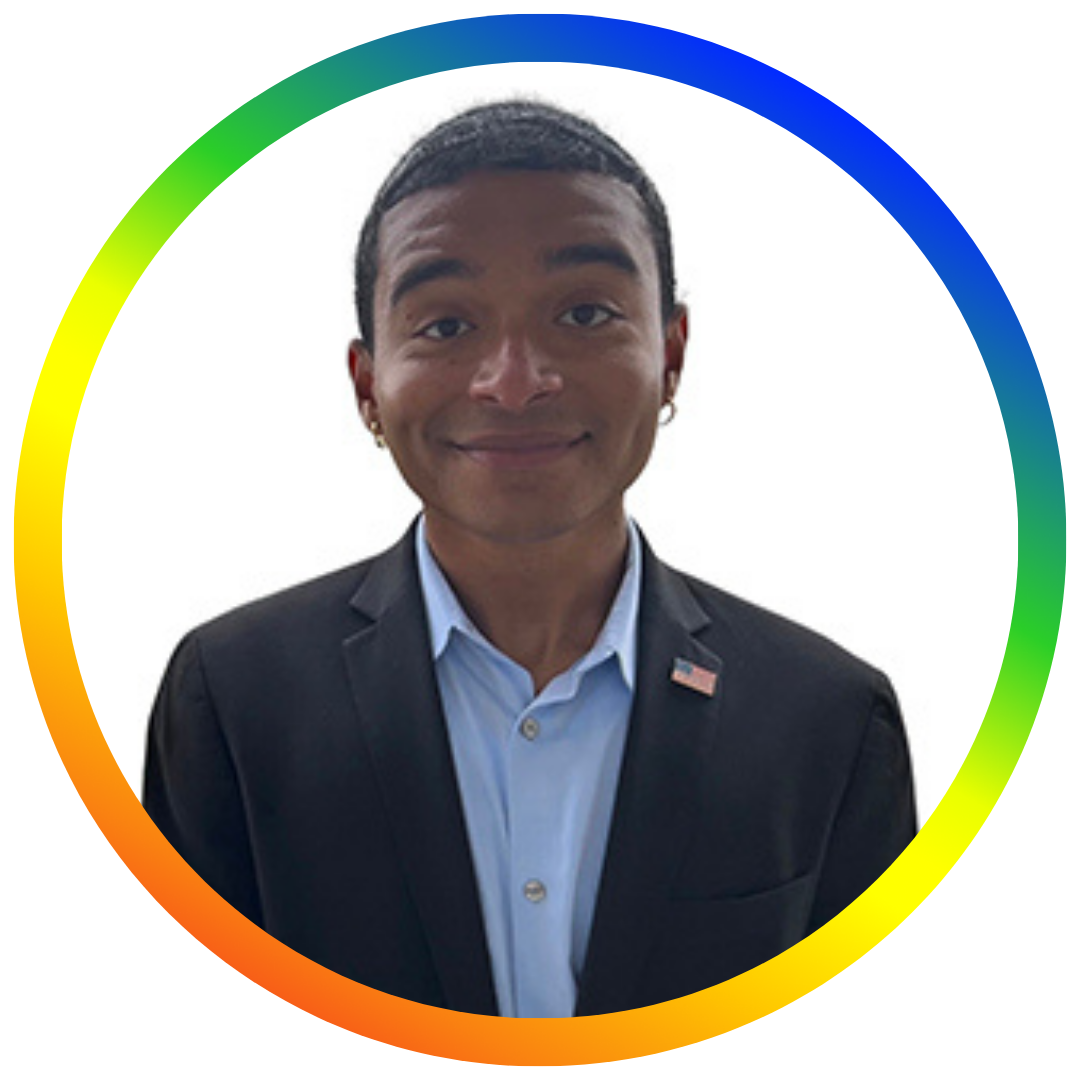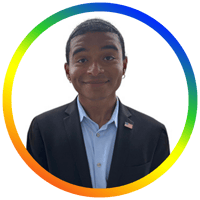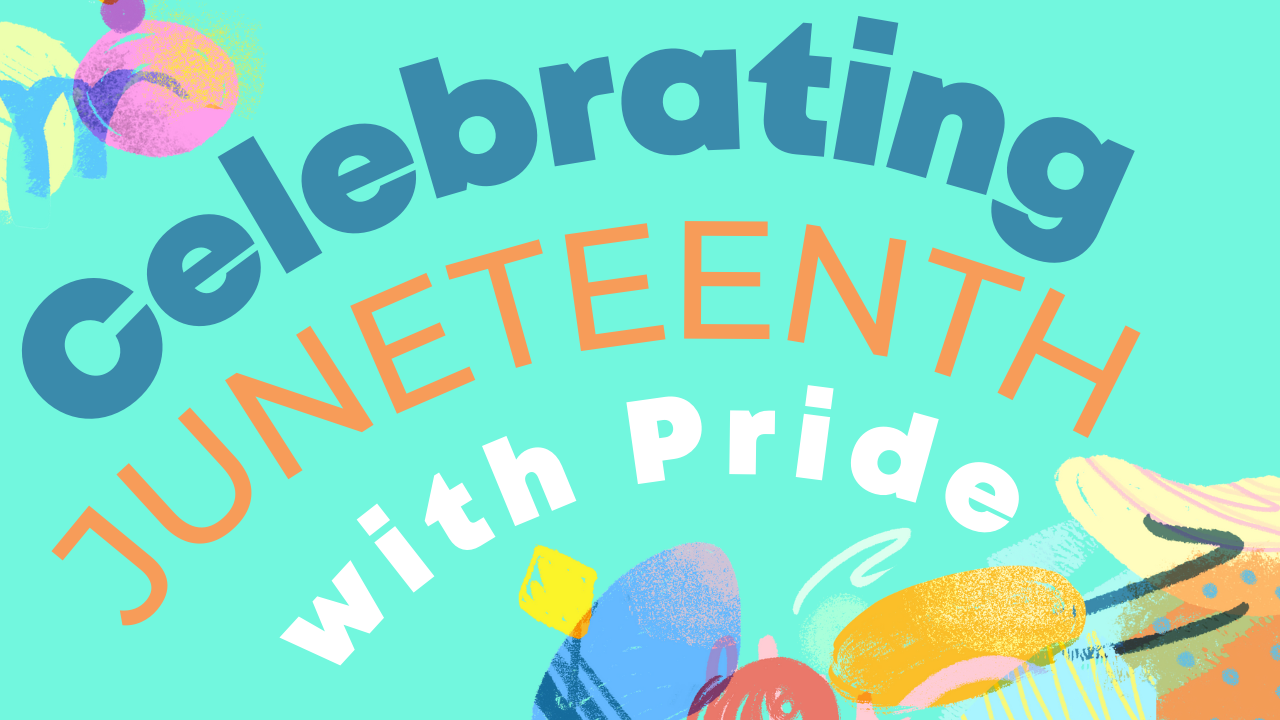An Enjoyer of Fiction; A Fighter for My Reality

With hate crimes on the rise in schools and colleges, Point Foundation Flagship Scholar with an Amazon Scholarship, Warren Small, reflects on their journey from dreaming of a better world to actually fighting for one.
 I started writing fiction in elementary school and continued throughout middle and high school. Creating a fictionalized, fantastical version of myself allowed me to be more comfortable with who I was, which in my case wasn’t always simple as a Black gay kid in the Chicago suburbs. While my love for fantasy as a genre fulfilled me as entertainment and as an escape, I knew I couldn’t turn a blind eye to the realities of the world as well. I grew up reading about the horrors of the Holocaust, LGBTQ+ activists who fought to shift a society that I can now be confident in, and people like Bayard Rustin, who fought against prejudices for being both Black and gay at a time when neither identity was tolerated. My love for reading and writing transformed the way I thought and interacted with the world. This instilled in me a love of politics and an eagerness to learn everything I could comprehend.
I started writing fiction in elementary school and continued throughout middle and high school. Creating a fictionalized, fantastical version of myself allowed me to be more comfortable with who I was, which in my case wasn’t always simple as a Black gay kid in the Chicago suburbs. While my love for fantasy as a genre fulfilled me as entertainment and as an escape, I knew I couldn’t turn a blind eye to the realities of the world as well. I grew up reading about the horrors of the Holocaust, LGBTQ+ activists who fought to shift a society that I can now be confident in, and people like Bayard Rustin, who fought against prejudices for being both Black and gay at a time when neither identity was tolerated. My love for reading and writing transformed the way I thought and interacted with the world. This instilled in me a love of politics and an eagerness to learn everything I could comprehend.
For years, I tried not to use the aspects of my identity as a “crutch,” knowing that I wouldn’t be given sympathy by most of my peers. As a result, I refused to create excuses for the issues that stemmed from my identity, even if they were warranted. I left the Chicago suburbs after my high school graduation to attend Howard University in Washington, D.C. Howard, a Historically Black University in one of the nation’s primarily black cities, was a massive pivot from the environment that I was raised in. My matriculation through Howard has made me feel pride in my identity, a significant shift from the insecurity I used to feel. I no longer choose to write in a fictionalized realm where my problems have ceased to exist. Millions of Black and gay people around the country still deal with the issues associated with living as a minority in this country. And one of those issues is being victimized by hate crimes.
According to a recent publication of FBI Statistics, hate crimes in schools and colleges have nearly doubled between 2018 and 2022. Black Americans are the most victimized demographic, followed by Jewish Americans, and LGBTQ+ Americans were reported as third. The same people whose experiences I used to study from a historical standpoint now have their safety called into question again decades later. At what point will Americans learn from our past, and when can we identify and implement the changes needed for a better future for all of us?
While the 90% rise in school-based hate crimes has outpaced the overall rise in hate crimes for our country, a 60% increase in hate crimes in general has been reported in 2022, with the same three most victimized demographics as schools (Black Americans, LGBTQ+ Americans, and Jewish Americans). This isn’t an isolated issue on college campuses. It’s part of a broader portion of history rooted in the marginalization of minority individuals for the benefit of those in positions of power. We live in a politically polarized state currently in America, one that hasn’t been so extreme in generations. LGBTQ+ people are not only under physical attack but the attacks of homophobic and transphobic state and federal legislatures. LGBTQ+ people are not only living in fear of their physical safety but also of their existence as Americans in everyday society. Legislatures across the country are focused on anti-LGBTQ+ bills rather than the issues Americans are seeking answers to right now.
The House of Representatives in Congress is adding anti-LGBTQ+ amendments to historically bipartisan bills to try and politically capitalize off their hate for LGBTQ+ people rather than hosting committee hearings on issues that the controlling party claims to care about, like the issue of inflation, economic stability, etc. Instead, we are seeing a historic amount of committee hearings centered around the demonization of LGBTQ+ Americans, which can be linked to the uptick in hate crimes for this already vulnerable community that I’m proud to be a part of. The current political climate has promoted hostile attitudes and actions towards members of the LGBTQ+ community.
In March, nonbinary student Nex Benedict from Oklahoma was allegedly assaulted at their school, before they died the following day. Oklahoma is known for its anti-LGBTQ+ legislative agenda, as one of the states with the most anti-LGBTQ+ bills passed in recent years. When lawmakers of the Oklahoma state legislature were asked to speak on the news of Nex’s passing, Sen. Tom Woods responded, “I represent a constituency that doesn’t want that filth in Oklahoma. We are a religious state. We are going to fight to keep that filth out of the State of Oklahoma.”
Regardless of the causes for Nex’s death, how have we gotten to a point in society when this sort of speech is acceptable in the context of the death of a teenager? Sen. Woods is showing his constituency, as well as the citizens of America, that this sort of bigotry is not only acceptable but justified through the view of religion. These political attacks from politicians aren’t new in the history of LGBTQ+ people both in America and globally. We (LGBTQ+ people) have made significant progress in recent years, advancements that decades ago people didn’t believe could be possible. We have to remember and celebrate the lives of people like Nex, who are used as political talking points for a homophobic and transphobic agenda. We must remember people like Nex to send the message to our antagonist that their messages won’t be tolerated, and will instead be used to grow our community stronger and more united. The lives of marginalized and underrepresented demographics in America are not a work of fiction that should be used to score political points that capitalize off of our dehumanization. For the first time in my life, I’ve never been prouder to write from the position of myself, a Black Gay man who’s proud of his reality and will do everything I can to advocate for myself and people like me.
Black Americans are facing the same assaults from state legislatures, in some cases even more explicitly. African Americans' history, innovations, and contributions to this country exceed common belief. For centuries, the work of African Americans (often out of their control through forced labor) has built some of the nation's most valued architecture, like the Capitol Building and the White House in Washington, D.C. The contributions of African Americans and the racism and discrimination that still impact us today are trying to be covered up with education censorship bills that ban the teaching of our history. The history of African Americans can’t be covered up, and the teaching of racism that we’ve endured for centuries shouldn’t be toned down to make other students more comfortable.
The banning of Critical Race Theory and AP African American studies is yet another example of censorship regarding the teaching of American history. We can’t truly understand the history of this nation without including the topics of slavery, the civil rights movement, and the racial undertones that were prevalent centuries ago and continue today. When we look back at the history of our world, it’s hard to find a time when the banning of education and history served us well. Whether we look at the book burnings of Jewish authors during the Holocaust or the erasure of African American Studies today, no matter how uncomfortable topics of racism or antisemitism may make people, knowledge of these realities is essential to escape false narratives that thrive on the lack of education. These narratives are dangerous not only to a specific demographic but to the safety of our nation and our democracy as a whole.
In an Education Week article, it is concluded that over a third of America’s kids could be impacted by teaching restrictions set by critical race theory and African American studies censorship laws. This will have a direct impact not only on the method of teaching by educators but will cloud judgments on African American history and force assumptions rather than facts for understanding the current state of America’s black community. This will have consequences for how the country overall views the African American demographic. It will impact the lives of everyday Black Americans as they matriculate through a society that would rather hide its flaws than acknowledge its issues. Black history is already disproportionately taught in schools and education systems. My personal experience with learning about the history of my racial past was subjected to a lesson on Martin Luther King Jr. during Black History Month, and an occasional slavery lesson in history class where I was sometimes the only black student in class and expected to answer on behalf of the Black community as a whole. It shouldn’t be the job of students of color to educate their peers, and in some cases their educators, on issues that should be common knowledge of the American population.
With restrictions on the already vague curriculum surrounding African Americans, we will continue to live in a society where millions of people are misguided on a core demographic that built this country. The banning of critical race theory and AP African American studies courses will only continue to ban the experiences of African Americans in a classroom setting, a setting where African Americans should feel safe. The solutions aren’t simple, and they can't be achieved overnight. However, an America that educates authentically and protects its most vulnerable communities is the ideal version of our country we should all find pride in. Americans who fit the “status quo” and are perceived to be normal on the articles of their identity have created a fantasy perspective of our country. They have fictionalized a narrative that they believe fits all members of our country. Enjoy the American "fantasy" and create a "fiction" for your personal entertainment, but not at the expense of fighting for a better reality for all of us, including our country's most vulnerable communities.
Related Posts
April 19, 2023, teampoint

LGBTQ+ Students and Environmental Justice
Every year, Earth Day is a call to dedicate our time, resources, and energy to solving climate...
June 14, 2023, teampoint

Celebrating Juneteenth with Pride
What is Juneteenth? Juneteenth is an annual federal holiday commemorating the day on which enslaved...
March 08, 2023, teampoint
Inspiring Inclusion this Women's History Month
Created by activists over 100 years ago, International Women’s Day not only honors the work women...